Inside Cancer
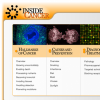
Evaluating our DNALC Inside Cancer website
Dec 22nd
Every multimedia developer is from time‐to‐time faced with the difficult question from a board member, critic or funding body: “This program is all very nice, but can you prove it actually helps students to learn?”
This year, we found the answer.
As part of my job as a producer at the DNA Learning Center, I evaluate our suite of resources, including websites, teacher training workshops and apps. We recently completed the evaluation of our cancer biology website, Inside Cancer, which included conducting experiments in 2010–11 to see if the site improves student learning in genetics and cancer biology.
There is increasing pressure on More >

Cancer Overtreatment. When the solution is worse than the problem.
Dec 13th
We often focus on cancers that are lethal, and especially those that can’t be treated, and for obvious reasons. This week, the National Institutes of Health addressed a different concern- that sometimes a cancer that isn’t life threatening is best left alone. In this case, it is prostate cancer, which affects about 30 to 40 percent of men over 50. About 240,000 men are diagnosed with prostate cancer a year, and over 30,000 die of the disease – so it is far from being rare or harmless for many. However, over half of prostate cancers are localized and many will More >
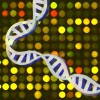
Harnessing the power of bioinformatics in cancer research
Nov 22nd
One of the biggest challenges facing cancer researchers is that the disease varies so much from person to person. Even the same type of cancer – lung, brain, breast, colon, and so on – can be subtly different. This means that a therapy that works well in one patient may have no effect in another.
So researchers in the UK brought in the big guns – bioinformatics.
Cancer Research UK has set up seven British centers to start collecting 9,000 tumor samples from a wide range of cancer patients to create a DNA database. Researchers will extract DNA from these tumors and More >
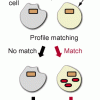
Designer Biology in the Fight against Cancer
Nov 8th
As many of you know and I have discussed before, cancer therapies have to target cancer cells while minimizing damage to normal cells. This is very difficult, in part because cancer cells are, although altered, still human cells. Synthetic biology is a new field that engineers biological systems for different applications. One interesting area where synthetic biology is now being applied is to cancer therapies. One advantage is that it may be possible to engineer sensors that can differentiate normal cells from tumor cells.
Early approaches have used engineering to create bacteria that specifically invade tumor cells. In one approach, bacteria More >
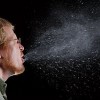
The Upside of Allergies
Oct 19th
Are you one of those unfortunate souls who suffers from allergies? Do you shudder at the thought of spring time, with all its budding flowers, new growth and pollen flying through the air? Can’t visit Aunty Annie’s house because of the cat dander? Have to ask the ingredients of every cookie for traces of nuts, eggs, or wheat?
Well you may actually be one of the lucky ones! Your immune system’s sensitivity may be protecting you from contracting brain cancer.
Researchers at the University of Illinois at Chicago asked over 1,000 hospital patients about their allergy histories. Astonishingly, patients who had high-grade More >
A Prize and a Passing
Oct 3rd
As some of you may have noticed, I have blogged about pancreatic cancer in the past because it is such a nasty type of cancer. Now, pancreatic cancer is in the news because, sadly, Ralph M. Steinman, who was awarded the Nobel Prize in Physiology or Medicine for his ground-breaking work on the immune system, died before he could receive the Award. Dr. Steinman primarily worked on immune cells, but his work also touched on cancer. The immune system monitors the body for both foreign invaders, like bacterial infections, and rogue cells that might become cancerous. The immune system is More >

Brain tumors snack on cholesterol
Sep 19th
Researchers at the University of California Los Angeles and Ohio State University Comprehensive Cancer Center are investigating a new treatment for glioblastoma, the deadliest form of brain cancer. Their paper, out this week in Cancer Discovery, shows how blocking a mechanism involved in cell metabolism and triggered by a cancer gene can reduce brain tumors.
Glioblastoma affects about 18,500 Americans each year, with less than More >
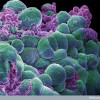
Feed a cold and starve a cancer?
May 12th
A recent review in Oncogene discusses how fasting may help patients who have been diagnosed with cancer. This is interesting, because at the moment most people are advised to eat extra calories and proteins while undergoing cancer treatments. It turns out that in animals fasting changes the physiology of the body and this can help protect normal cells from the damaging effects of anti-cancer agents. The amazing thing is that cancer cells are abnormal and don’t get the same protection, so fasting seems to be a way to help normal cells and not help the targets of the treatment. It More >
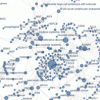
Cancer Genomics: so many mutations!
Feb 18th
The human genome is the complete collection of over three billion bases in each of our cells. Cancers accumulate multiple changes, or mutations, in their DNA that contribute to the disease by changing how cells behave. For instance, cancers need nutrients to grow. Very often, they get these nutrients by producing signals that encourage new blood vessel formation. Finding the mutations that lead to cancer is very difficult. For one thing, even for cancers that affect the same tissue and look similar, the mutations can be very different. Also, one of the hallmarks of cancer is an increased rate of More >

Why no cure for cancer?
Aug 5th
I was looking through some of the comments on the blog and thought I would address a few of them, as I imagine others would have similar questions. One reader wanted to know why some cancers are more fatal than others. For example, the five-year survival rate for prostate cancer is nearly 99%, while it is 4% for pancreatic cancer. There are several reasons for this. First, some cancers are by nature slow growing and unlikely to spread through the body, like prostate cancers, while other cancers are very aggressive and often metastasize. Another issue is diagnosis: there are good More >
